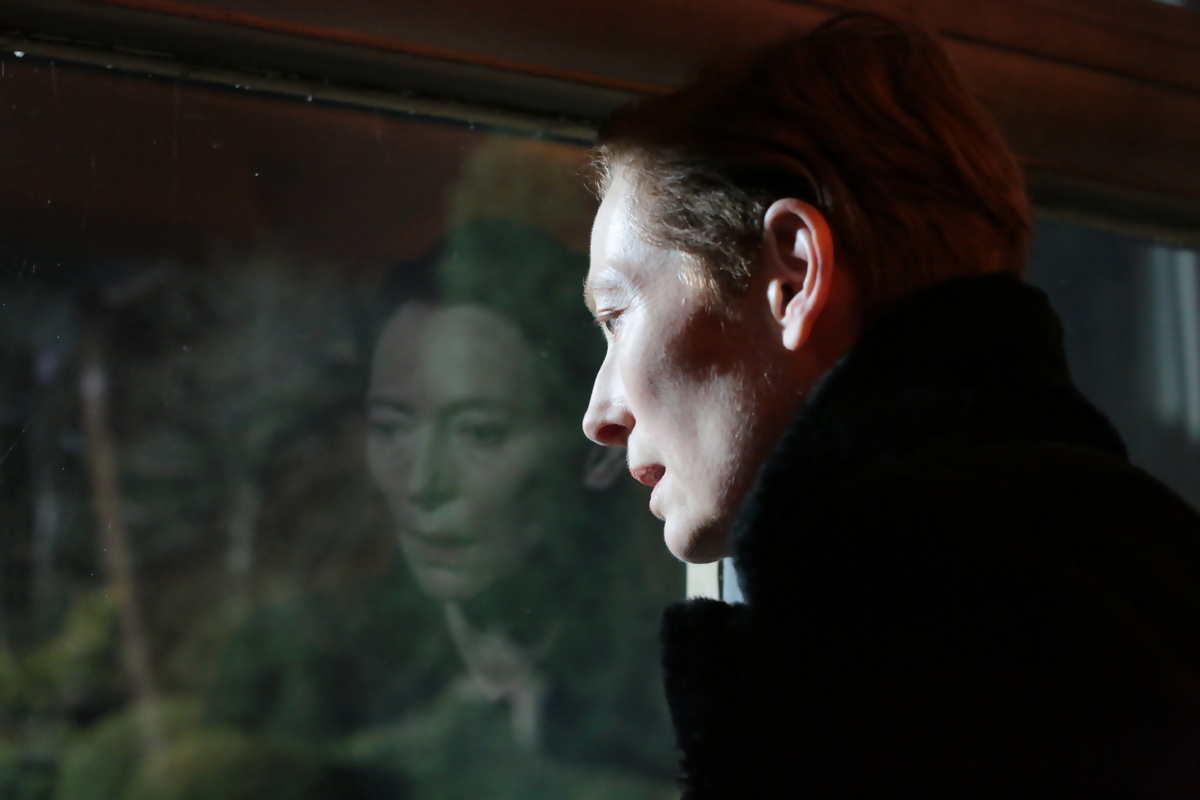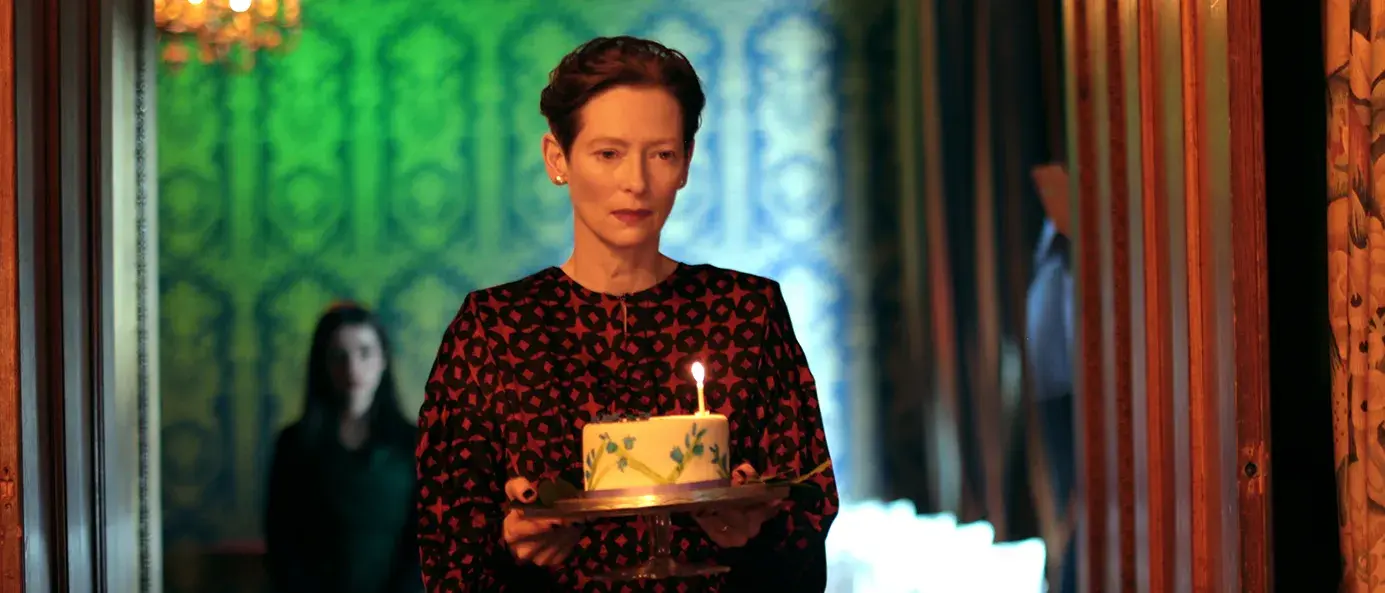
★★★☆☆
The Eternal Daughter has atmosphere aplenty, but the twisting corridors of its stately home setting hold few surprises in Joanna Hogg’s latest mystery/drama.
If the streaming revolution has one thing to answer for, it’s the death of the TV movie. Low-budget, low-concept and inexplicably starring a renowned Thespian in a leading role, the BBC—who are distributing The Eternal Daughter alongside A24—used to pump these things out on the regs. Now that big studio releases frequently skip cinemas altogether in favour of the small screen, the packed schedules of 24/7 TV never seem to make the time for a lengthy ghost story clearly set a stone’s throw from the Blue Peter Gardens.
Enter The Eternal Daughter, which in a curious way feels like a film out of time. You see it in the cross-fades and quick zooms, which launch you straight back to Hammer-inflected horror flicks of the newly technicoloured age. You hear it in the sound design, creaking doors and a perpetually howling gale as if the whole thing was shot in front of a massive, single-glazed window. And, unfortunately, you read it in the story, which though it starts as a compelling and delightfully spooky mystery, soon translates into a tale we can’t help but feel we’ve heard before.
Filmed in secret during the pandemic, the story finds filmmaker Julie (Tilda Swinton) and her aging mother Rosalind (also Tilda Swinton) in the back of a cab on their way to a remote, and very foggy, country home in the Welsh countryside. Though it’s since been turned into a hotel, Rosalind once lived there for a while, and Julie’s keen to take her back so she might learn a little more about her mother’s past.

Credit: A24
Unfortunately, the receptionist, a delightfully grumpy debut from Carly-Sophia Davies, isn’t the most gracious of hosts, and the house, being an old, Victorian Gothic creature, has a tendency to go bump in the night. So, while Julie and Rosalind enjoy marmalade on toast together during the day, after dark the daughter explores the mirror-laden corridors and foggy grounds of her mother’s former home, searching for answers.
Tonally, The Eternal Daughter is a delight. Howling winds batter against the windows almost constantly, eerie flute music echoes through the corridors, and whatever Joanna Hogg paid for that fog machine, she certainly got her money’s worth. The film embraces cliché with a clear and ever-present love for the genre, and the film is never less than reassuringly spooky throughout.
Swinton, too, is predictably brilliant as both generations of the same family, subtle quirks differentiating the two even without the use of makeup or grey wigs. Ed Rutherford’s tricksy cinematography manages never to put them in the same frame—a choice which, though occasionally titter-inducing as Tilda has an entire shot-reverse-shot conversation with herself, remains largely impressive and unobtrusive throughout.
The story in question, however, leaves a bit to be desired. Presented as a mystery-drama, the central puzzle will hardly keep anyone up at night, and the central metaphor feels a little too signposted and, disappointingly from Hogg, a little too unoriginal to break into Souvenir territory. Still, the director’s fascination with, and mastery of, the filmmaking process shines throughout, and The Eternal Daughter asks enough questions to make its tight 96-minute runtime fly by. As far as lockdown projects go, this one holds up rather well.
The Eternal Daughter premieres at BFI London Film Festival on October 6 and is released in cinemas later this year.



